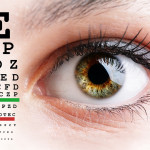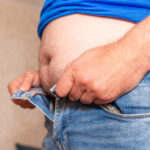By David Blyweiss, M.D.
Every time I turn on the TV, there’s another show about weight loss!
If it’s not The Biggest Loser, it’s Extreme Makeover: Weight Loss Edition. Now I know—America is overweight—it’s something I see in my practice every day. It’s become the new American epidemic. But I’m not sure exploiting this on television will solve the problem.
Case in point: While I usually flip right past these programs in search of a good ball game, one show did catch my attention. Addicted to Food is a new show that follows 8 people who use food to escape all the problems life has thrown their way.
I’m sure you’re familiar with these people—they live to eat because food makes them feel better, at least temporarily.
Open your arteries, improve blood flow for a new health miracle...
Did you know your circulatory system has over 60,000 miles of arteries, veins and other blood vessels, if stretched end to end?
But as you age, your blood vessels undergo changes, which may cause them to stiffen, thicken and get clogged.
GOOD NEWS! Doctors have now identified a “Miracle Molecule” inside your arteries that helps OPEN your arteries and IMPROVE blood flow.
It’s what Dr. Valentin Fuster calls it, "One of the most important discoveries in the history of cardiovascular medicine."To you, that means...
- Healthy blood pressure
- Sharper mind and memory
- Skyrocketing energy and muscular strength
- Increased pleasure and passion in the bedroom
- Improved circulation to every cell and organ in your body
Go here to discover a new natural way to significantly boost the levels of this miracle molecule in YOUR body NOW!
The more unhappy these folks are, the more they eat. And the more they eat, the heavier they become. That’s why most of these shows focus on “fixing” whatever deep-seated emotional turmoil is at the root of their weight gain.
But I’ve got news for the psycologists on the show that try to help these folks break free of their addiction. The weight problems aren’t emotional or psycholocial. And it’s also not the participant’s fault!
Are You Suffering From...
- Love handles and a pot belly
- Romance that isn't what it used to
- Forgetfulness and inattention
- Low (or no) strength and endurance
- A sex drive that's shifted into neutral...or worse
If so...you may have Mature Male Burnout. Click here to discover more about this unique condition and what you can do about it.
Sure, low self esteem, guilt and depression can make you more likely to reach for that pint of Ben & Jerry’s. But for many of us, uncontrolled eating just might be based on something more tangible.
In fact, scientists now believe that certain kinds of foods—the ones that are most advertised, most affordable , most readily available and manufactured to appeal to your taste buds—are just as physically addictive as heroine!
So what’s the biggest culprit?
Overly processed and refined foods. These foods, which are high in calories and low in nutrition, contain combinations of fat, sugar, and salt that are so tasty many people cannot stop eating them even when full.
These foods are deliberately manufactured in a lab to create feelings of bliss. You see, food scientists have discovered that the right combination of tastes activate the pleasure centers of the brain, causing neurons to fire faster and more frequently.1 And that means, for millions of people, these foods trigger cravings that are simply impossible to resist.
Adding fuel to the fire, these foods also spike your blood sugar. And that means you’ll soon be hungry again for the same sweet, salty or fatty foods.2
Can you break this vicious cycle? Absolutely. And it doesn’t take psychoanalysis to do it.
The first step is to clear out all of the junk in your kitchen. That means, cookies, candy, ice cream, processed meat and cheese, crackers, sugary cereals and anything else made with white flour, white sugar or artificial sweeteners. Once your cupboards are bare, stock up on foods that don’t cause blood sugar to rise and fall dramatically: lean meats, beans, whole grains, vegetables and fresh fruits.
While successful TV shows might require complicated diet plans and hours in the gym with a celebrity trainer, you can accomplish your weight loss goals by adopting just 6 easy habits:
- Eat breakfast EVERY DAY. But ditch the frosted flakes and doughnuts. Instead make sure your first meal of the day contains a mixture of high quality protein and complex carbs. My favorite is 2 to 4 egg whites (with a yolk or two thrown in for good measure) scrambled up with onions and other veggies. On the side, I like some turkey bacon or sausage and a cup of either plain oatmeal or fresh fruit.
- Eat something every three hours or so. For instance, I eat an apple or handful of homemade trail mix around 10:30 a.m. Mid-afternoon finds me nibbling on some hummus with fresh cucumber slices. If you aren’t starving you won’t be as inclined to stop for that Big Mac or caramel latte with whipped cream.
- Include lean, high quality protein with every meal. Organic chicken breast, fish, turkey, beans, organic eggs, organic soy and whey protein isolate are all excellent options.
- Practice portion control. Even healthy food can add unnecessary calories if you eat too much of it.
- Drink water. Staying hydrated increases the body’s metabolism, maintains healthy skin and creates a satisfying feeling of fullness. That means fewer trips to raid the fridge.
- Move your body. Walk, bike, swim or hit the gym for at least 30 minutes, 5 days a week.
Need a little supplemental help? Try chromium. At least one clinical trial shows that this trace mineral helps to curb carbohydrate cravings.3 Because chromium can stabilize the swings in your blood sugar, taking 200 mcg a day might help you with you long-term goals even if you occasionally fall off the wagon.
A good multivitamin can provide further nutritional support. Look for one that contains a wide range of whole-food nutrients to make sure your body is getting all of the healthful phytonutrients it needs.
References:
- Johnson PM. Dopamine D2 receptors in addiction-like reward dysfunction and compulsive eating in obese rats. Nature Neuroscience. 2010;13:635-641.
- Armendáriz-Anguiano AL. Effect of a low glycemic load on body composition and Homeostasis Model Assessment (HOMA) in overweight and obese subjects. Nutricion Hospitalaria. 2011;26:170-175.
- Docherty JP. A double-blind, placebo-controlled, exploratory trial of chromium picolinate in atypical depression: effect on carbohydrate craving. Journal of Psychiatric Practice. 2005;11:302-314






